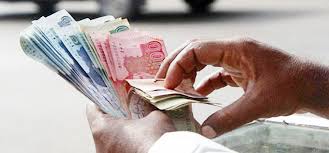The institute of Chartered Accountants of Pakistan (ICAP) has proposed structural reforms that focus on broadening the tax base and the simplifying the complex procedures for determining tax liabilities.
Speaking at a seminar, the attendees informed that presently, there are multiple tax determining mechanisms that co-exist.
They further informed that the corporate sector of the country has been severely affected by the government’s extreme tax collection measures to meet revenue collection targets.
Speaking at the seminar, tax expert Ejaz Hussain Rathore stated that although tax evasion needs to countered, however, there is a need to support the compliant taxpayers. He regretted that corporate tax of 31pc for the year 2017 and 30pc for the year 2018 and onwards are one of the highest in the region. He was of the view that tax needs to be brought at par with other competitive economies, adding that in order to promote corporatization, the small companies should be brought at par with the association of persons and individuals by providing the threshold turnover of Rs 50m for the purposes of withholding agent under section 153.
Another tax expert Asif Kasbati proposed that in order to boost the export of services, the income from export of all types of services should be exempted from tax payment in line with the IT-enabled services.
Another tax proposal suggested by him stated that the export of services should be liable for a reduced rate of tax in line with the export of other goods.
The expert went on to add the tax payer should be granted compensation for disputed tax demand recovered, but later deleted in appeals.
He stressed upon the fairness and transparency in the collection of tax revenues and also emphasised enforcement of accountability for the FBR.
He went on to add that Islamic modes of financing should be treated at par with the financing obtained through conventional means via commercial financial institutions for the purposes of determining tax liabilities. This will provide tax neutrality to individuals who obtain financing from Islamic financial institutions.




